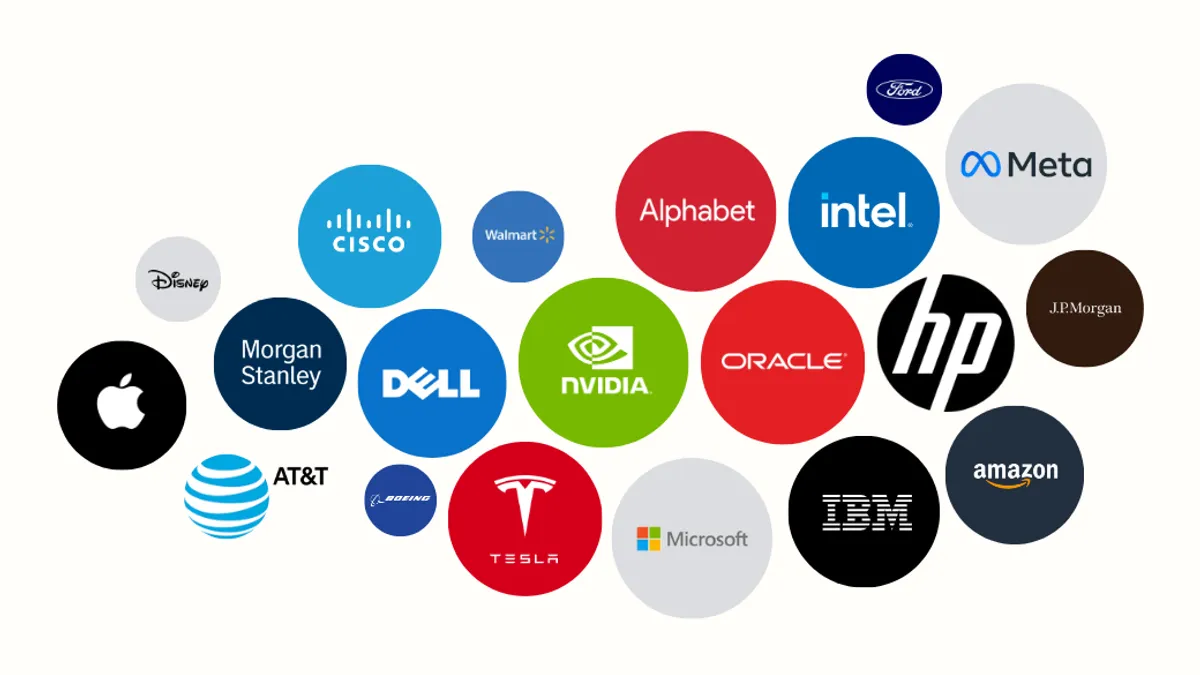As we move through 2024, artificial intelligence (AI) is transforming industries at an unprecedented pace. Organizations across sectors are increasingly leveraging AI to innovate and drive growth. While tech titans such as Nvidia, Microsoft, and Alphabet continue to dominate the AI landscape, a fascinating shift is emerging. Non-tech firms are stepping into the spotlight, redefining the role of AI in business. Financial institutions, retailers, and entertainment companies are demonstrating that AI is no longer the exclusive domain of Silicon Valley giants.
AI Leaders Beyond Tech
AI is often synonymous with tech companies, with recent industry assessments highlighting Oracle and Microsoft as leaders in this space and Nvidia’s central role in AI innovation cementing its leadership position. Beyond hardware, Nvidia’s strategic partnerships and industry-wide influence have made it an indispensable player. Oracle, on the other hand, has distinguished itself with its focus on ethical AI, tackling complex issues such as bias and data privacy.
However, what is particularly noteworthy is the rise of non-traditional AI players. Companies like Walmart, Morgan Stanley, and Tesla are demonstrating that AI is not just a tech phenomenon but a business imperative. Whether it’s enhancing customer experiences or streamlining supply chain operations, these companies are showcasing the transformative potential of AI. For example, Walmart’s use of AI to revolutionize logistics, refine customer service through an interactive shopping assistant, implement body measurement AI for virtual try on and expand drone delivery services has sparked important conversations around the balance between innovation and ethical boundaries, particularly in relation to employee monitoring. The retailer’s reported use of AI to track employee sentiment on Slack has even been criticized as a form of "corporate authoritarianism" by some online commenters.
Moreover, companies that engage transparently with stakeholders on AI tend to benefit from stronger consumer sentiment. It is essential for firms to ensure that their messaging on topics such as data protection is honest and balanced. But transparency also carries risks, as evidenced by the scrutiny faced by Oracle, Microsoft, and Alphabet. Disney, who endured heavy public criticism for their decision to exclude shareholder votes on AI usage, also demonstrated the importance of managing employee expectations around AI policies as comments by CEO Bob Iger sparked concerns that an overreliance on generative AI technology could stifle artistic creativity and lead to job losses.
Ethical AI: A Strategic Imperative
Ethical AI has become a critical differentiator in today’s marketplace. Oracle and Intel have emerged as leaders in this space, leaning into transparency and robust ethical safeguards. Oracle, in particular, has garnered positive sentiment by keeping stakeholders well-informed on its approach to mitigating bias and protecting data. The technology giant’s strong ethical perception was largely influenced by public statements of accountability, such as CEO Chuck Robbins signing the Vatican AI ethics pledge and thought leadership around thoughtful governance.
In an environment where skepticism towards technology is rising, ethical AI practices are not only essential for maintaining trust but also for sustaining long-term business success. Analysis from the recently published Storyful AI Index indicates that 70 percent of ranked companies actively communicate about AI initiatives on social media. But transparency is a double-edged sword— while it helps brands build credibility, it also invites scrutiny, as demonstrated by Oracle and Alphabet’s experiences with criticism over data governance.
Strategic Partnerships and Market Perception
Collaborative partnerships are playing a pivotal role in advancing AI innovation. Nvidia’s alliances with HP and IBM, for instance, have significantly enhanced the AI profiles of these companies. Such partnerships underscore the “halo effect” that comes from aligning with AI leaders. However, these alliances are not without risk, as illustrated by Meta’s challenges with privacy concerns.
Conclusion
AI presents extraordinary opportunities for businesses across industries but also raises critical questions regarding ethics and public trust. Companies like Nvidia, Oracle, and Walmart are demonstrating how AI can be accessed for growth while proactively tackling issues of transparency and ethics. With the rapid evolution of AI, organizations must balance innovation with responsible practices and have a well-defined communications strategy that’s rooted in stakeholder and industry insights.
About Storyful
Storyful Intelligence uses advanced tools and skilled analysts to decode the fast-changing digital world. We track trends, spot risks, and highlight the opportunities that matter to brand reputation. Our goal is to help clients stay ahead of potential threats and make the most of opportunities to strengthen their brand in today’s competitive marketplace.










